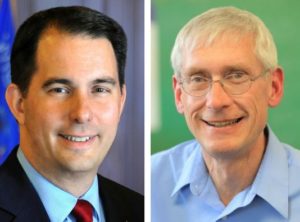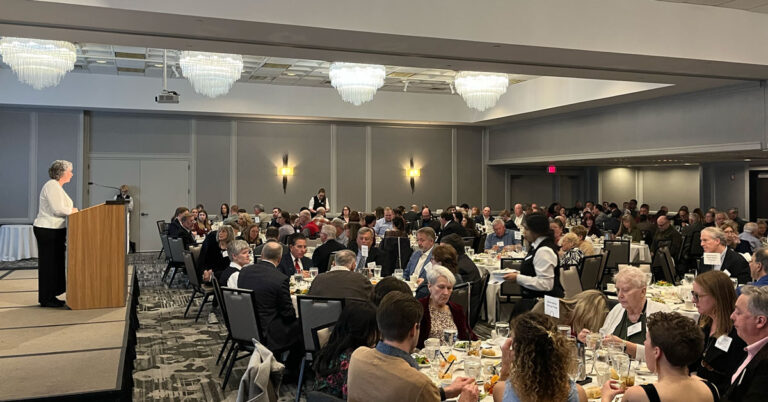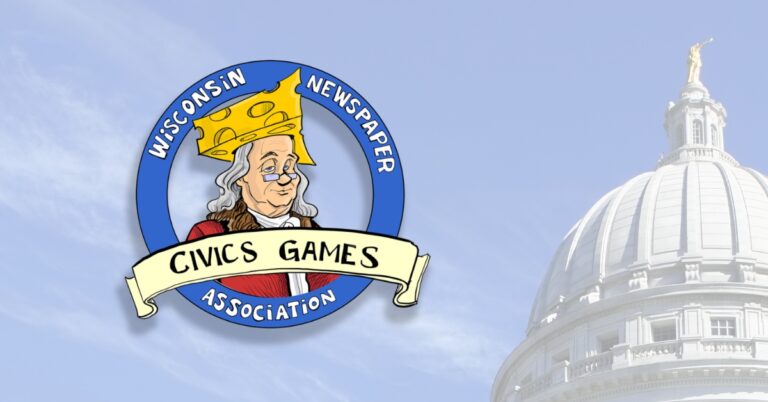The Capitol Report, produced by WisPolitics.com — a nonpartisan, Madison-based news service that specializes in coverage of government and politics — provides a weekly analysis of issues being
debated in Wisconsin state government. It is underwritten by the WNA and produced exclusively for its members. WisPolitics President Jeff Mayers is a former editor and reporter for the Associated Press and a former political writer for the Wisconsin State Journal. The WisPolitics logo can be downloaded here.
Editor’s note: This column is provided to Wisconsin Newspaper Association members by WisPolitics.com. Proper attribution to WisPolitics.com is appreciated. Also, please publish the tagline that is included at the end of the column.
Elections will set the tone for budget talks
It’s election season, but budget watchers are looking ahead a few weeks until after Nov. 6.
They are looking ahead, because the making of the next two-year budget will begin in earnest once the next governor is elected. If it’s Gov. Scott Walker, and Republicans maintain control of the Legislature, things will operate much like have since 2011. If state schools Superintendent Tony Evers wins, and if Democrats wrest control of the state Senate, the making of the budget becomes a much different story.
In the meantime, the Walker administration is issuing numbers showing the state’s books are in good shape.

But promises by the governor for various road projects and higher school spending are causing even some Republicans to wonder about how the next budget could pay for it all.
The new Walker administration reports:
» The state finished the 2017-18 fiscal year with $579 million in the general fund, a slight improvement from previous projections, the Department of Administration announced recently.
The final accounting for the fiscal year found the state had $41.2 million more in the bank than what was estimated when the 2017-19 legislative session ended this spring.
Still, that $41.2 million is less than 0.3 percent of general fund taxes collected over the course of the year.
DOA also reported the state saw general fund tax collections increase 4 percent, which was in line with previous projections from the Legislative Fiscal Bureau. Collections for the year were up $18.4 million over the previous estimate to more than $16.1 billion.
And the state deposited $33.1 million into the budget stabilization fund, which continued to build the record balance to $320.1 million.
» And the Department of Revenue reports tax collections for the first three months of fiscal year 2018-19 were up 9.2 percent compared to the same period a year ago.
The uptick was driven by individual income taxes coming in 6.8 percent higher than the same period for 2017-18; sales taxes being up 8.9 percent; and corporate taxes 33.1 percent.
For the full fiscal year, the Legislative Fiscal Bureau projected income taxes to be up 4 percent, sales taxes 4.8 percent and corporate taxes down 1.9 percent.
In November, the Walker administration will release new revenue estimates for 2018-19, along with projections for the upcoming 2019-21 budget.
And then the fun begins.
Senate Majority Leader Scott Fitzgerald, clinging now to a narrow majority, is casting doubt on a proposal from Walker for the state to fund two-thirds of K-12 public education costs. That is also a pledge of Evers.
The Legislative Fiscal Bureau has estimated such a proposal would have cost $130 million more in the 2018-19 fiscal year, however, the agency has not estimated what it would cost in future budgets.
The state is at 65.8 percent for the 2018-19 school year, according to the LFB.
“Now you’re talking a big chunk of change, so I think you’re going to have to get some fresh fiscal numbers to see whether or not you could pull that off,” Fitzgerald said during the WisPolitics.com luncheon on Oct. 16.
Still, the Senate leader said it’s likely the state could fund another proposal from Walker to increase state transportation funding for counties and towns that would together cost about $110 million annually.
“That’s actually where there’s a lot of pressure for legislators back home in the district,” Fitzgerald said. “I think that is a commitment you can live up to.”
The Capitol Report is written by editorial staff at WisPolitics.com, a nonpartisan, Madison-based news service that specializes in coverage of government and politics, and is distributed for publication by members of the Wisconsin Newspaper Association.
Copyright © WisPolitics.com



